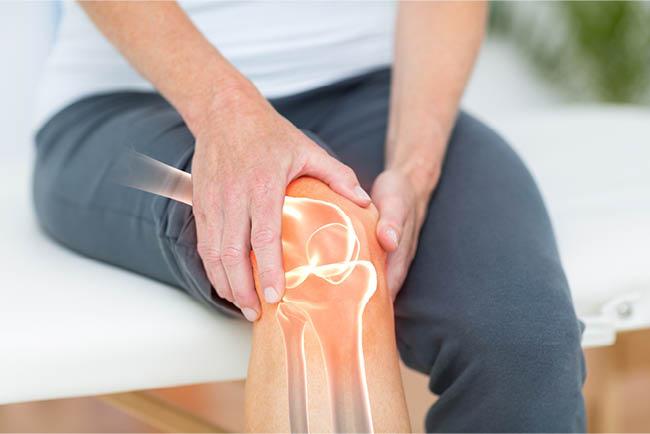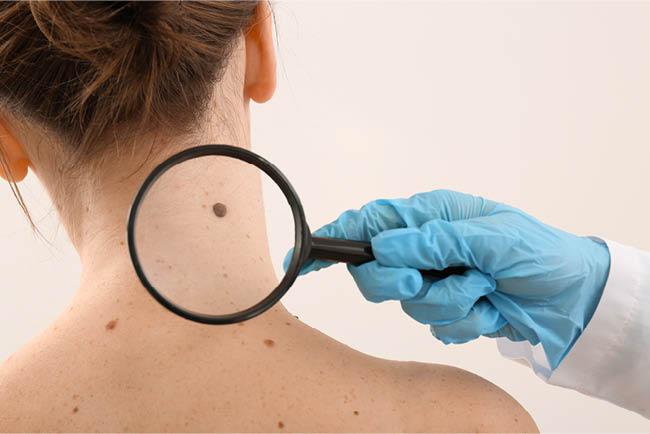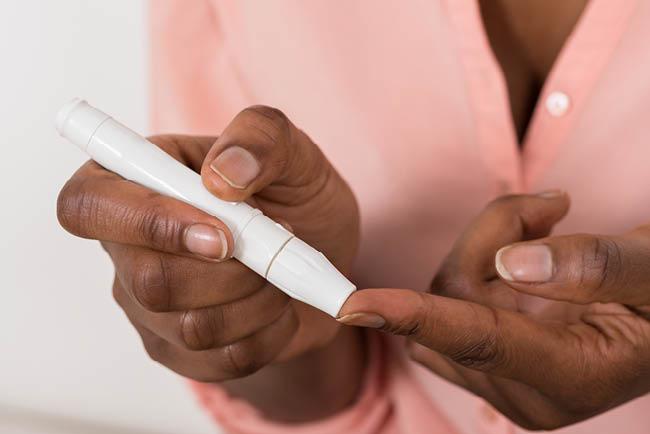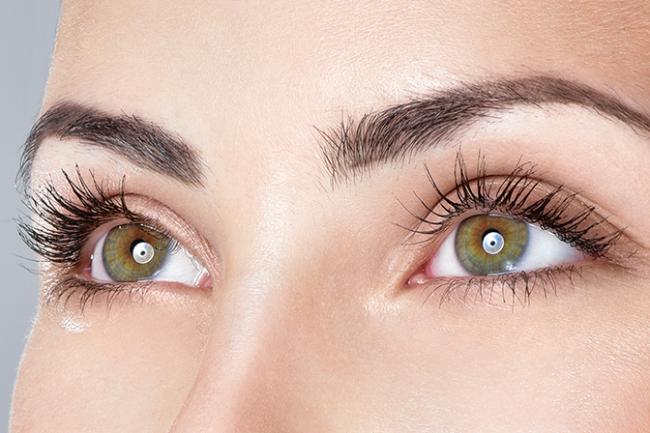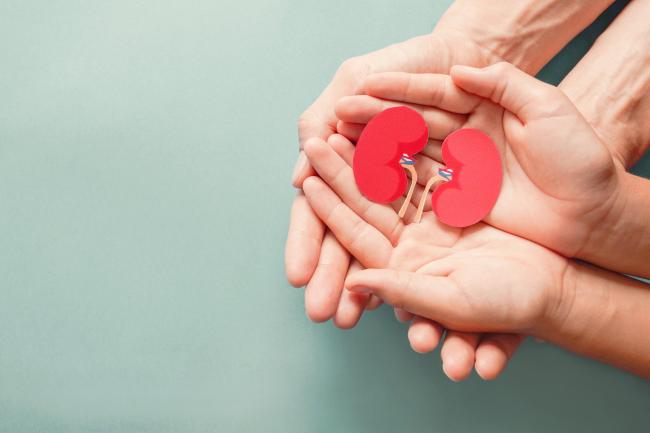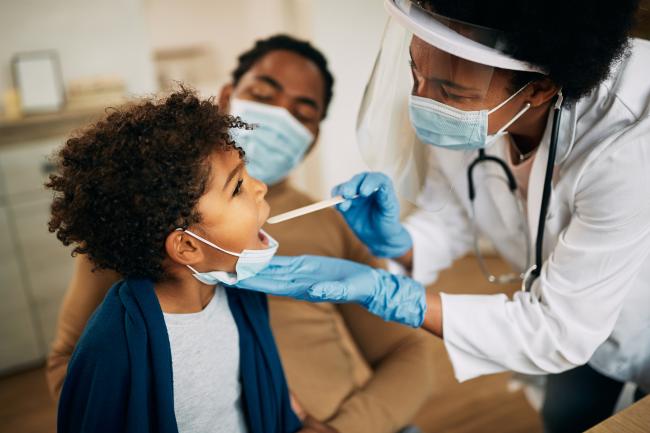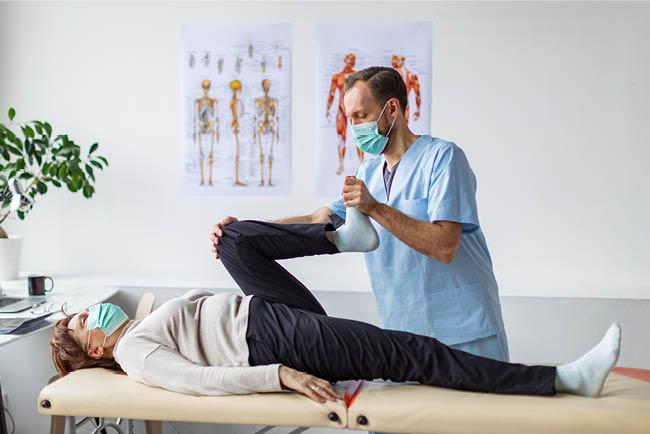Search Studies
Research studies are looking for volunteers just like you. Both healthy volunteers and participants with specific health conditions are needed to help answer important questions impacting the health of our friends and family. Join us to improve the health of others.
-
Spinal Cord Stimulation and Small Fiber Peripheral Neuropathy
Official Title Spinal Cord Stimulation and Small Fiber Peripheral NeuropathyPurpose
The purpose of this study is to determine whether spinal cord stimulation (SCS) will reduce pain in patients with painful Diabetic Peripheral Neuropathy (DPN).
Could this study be right for you?
Inclusion Criteria:
- Over 18 years old
- Diagnosis of diabetic peripheral neuropathy refractory to treatment with gabapentin or pregabalin and at least 1 other class of analgesic
- Diagnosis of medically refractory pain secondary to diabetic neuropathy
- Presence of pain for 12 months
Exclusion Criteria:
- Severe medical comorbidities that, in the opinion of the surgeon, exclude the patient from surgical intervention
- Spinal disease with severe spinal stenosis or spinal cord compression in the region of the proposed spinal cord stimulator lead placement
- Coagulopathy that cannot be corrected
- Unable to discontinue blood thinning medications
Inclusion and Exclusion Criteria varies, please contact Study Coordinator.
Age Range
18 years and up -
Diabetic Foot Ulcer Study
Official Title Concurrent optical and magnetic stimulation (COMS) for treatment of refractory diabetic foot ulcer; a prospective randomized, sham-controlled, double-blinded, pivotal clinical trialPurpose
The purpose of this study is to evaluate the safety and effectiveness of the treatment with the COMS One device in subjects with refractory diabetic foot ulcers (DFUs).
The duration of this study will last up to 28 weeks.
Could this study be right for you?
Inclusion
- Male and females aged 22 to 90 years old
- Able to understand and sign the informed consent form (ICF) and comply with requirements set in the protocol including trial visits, trial treatment and dressing regimens and compliance with required offloading device (if applicable)
- Type 1 or Type 2 diabetes mellitus
Exclusion
- Known pregnancy or lactating
- Active skin cancer, a history of skin cancer or any other localized cancer, precancerous lesions or large moles in the areas to be treated
Inclusion and Exclusion Criteria varies, please contact Study Coordinator for more information.
Age Range
22 - 90 years -
A Study for those with Treatment Resistant Epilepsy & Anxiety
Official Title An open-label clinical trial evaluating the ExAblate Model 4000 Type-1 focused ultrasound unilateral thalamotomy for patients with treatment-refractory focal onset epilepsy and comorbid anxietyPurpose
The purpose of the study is to learn more about whether an ultrasound treatment for epilepsy and anxiety is safe and effective.
Could this study be right for you?
- Age: 18-65 years old
- Treatment resistant Epilepsy (focal or partial-onset seizures)
- ≥ 3 seizures/month
- Moderate-to-severe Anxiety
Age Range
18 - 65 years -
Variations in Ketone Metabolism
Official Title Strategies to Augment Ketosis- Variations in Ketone MetabolismPurpose
This study is being done to see how individuals respond to a ketone ester (KE) across different age groups and health statuses. With the ketogenic diet becoming more popular, research on ketones (a molecule created when fat is broken down in the body) has grown as well.
These findings will be used to help develop future research studies and help others to pick the right doses of ketone supplement.
Could this study be right for you?
- Do NOT smoke or have diabetes, liver disease, kidney disease, cardiovascular disease, or any form of endocrine dysfunction
- Have NOT experienced >10% weight loss in the last 6 months
- Do NOT currently consume a low carbohydrate diet
- Do NOT consume alcohol more than 3 drinks/daily or 14 drinks/weekly
- Do NOT suffer from food allergies or gastrointestinal disorders
Age Range
20 - 70 years -
Sleep Restriction and Ketone Supplements
Official Title Strategies to Augment Ketosis: Ketone Conferred Resiliency Against Sleep Restriction (STAK-Sleep)Purpose
To examine if drinking a ketone supplement, twice a day, can improve brain, digital shooting, and physical performance during short-term sleep restriction (4 nights, 50% of normal sleep).
Could this study be right for you?
- Healthy
- Age: 18 - 40 years old
- BMI: 20-35 kg/m2
- No diagnosed sleep disorders
- Not consuming a ketogenic diet
Age Range
18 - 40 years -
A Feasibility Study to Assess the Effect of a Ketogenic Diet as a Co-Therapy for Major Depressive Disorder
Official Title Ketogenic Intervention in Depression (KIND)Purpose
The overarching goal of this pilot study is to: (1) demonstrate that a well-formulated KD can be implemented in treatment program for major depression, and (2) test whether such a program results in reductions of symptoms of depression.
Could this study be right for you?
Inclusion Criteria:
- OSU students (age 18-30 years at the time of enrollment) with confirmed major depressive disorder as determined by SCID-5 diagnosis at baseline testing.
- Currently engaged in counseling and or medication treatment for depression
- Available for a 12-week period and indicate willingness and ability to eat KD foods as prescribed
Exclusion Criteria:
- Disordered eating, as evidenced by meeting criteria for Anorexia Nervosa, Bulimia Nervosa, Binge Eating Disorder, Other Specified Eating Disorder, Unspecified Eating Disorder, or Avoidant Restrictive Eating Disorder during the SCID-5 interview at baseline testing.
- Substantial imminent risk of suicide as assessed during the SCID-5 interview.
- Body mass index (BMI) < 20 kg/m2
- Habitual consumption of a structured low-carbohydrate diet in the last 6-months
Exclusion Criteria varies, please contact Study Coordinator.
Age Range
18 - 30 years -
Neurodevelopmental Effects of Youth Tackle Football
Official Title Understanding the Neurodevelopmental Effects of Youth Tackle Football ParticipationPurpose
In this study we are aiming to identify risk factors for higher exposure to football-related neurotrauma in youth tackle football players and to determine the effects of football-related neurotrauma exposure on neurodevelopment in children with no previous tackle football participation.
For this specific posting, we are looking for boys ages 8-12 who are non-athletes or athletes who play non-contact sports to serve as control subjects for our fMRI study.
Could this study be right for you?
We are looking for boys ages 8-12 who are either non-athletes or do not participate in any contact sports.
- Boys must have no metal implanted in the body
- Have no prior history of head trauma
- Have no serious health or mental health diagnoses
- Must not have a fear of enclosed spaces
Age Range
8 - 12 years -
Exploring the Development of the Infant and Fetal Brain
Official Title Exploring the Connectivity and Functional Organization of the Infant BrainPurpose
The purpose of the study is to investigate how the brain that we are each born with leads to our own unique behavior later in life, and the similarities and differences between maternal and child brains. We are studying infants prenatally and postnatally, following up with them as they grow and develop, and studying their mothers to understand how similar/different they are to their child.
Could this study be right for you?
- Infants under 3 years of age, and pregnant persons who are at least 20 weeks pregnant
- All participants must have no metal implanted in the body
- Have no significant health conditions or history of serious mental illness
- Not suffer from a (fear of enclosed spaces)
- Pregnancies must be without complication.
Age Range
Up to 40 years -
PROMISE
Official Title PRenatal and Obstetric Maternal Exposures and ISlet Autoantibodies in Early Life (PROMISE)Purpose
The purpose of this study is to find out more about how health and exposures during pregnancy, such as having an infection, diet and growth may impact later risk of islet autoimmunity in the
child. We are also interested in finding out more about why having a father or sibling with type 1 diabetes increases risk of autoimmunity in the child than having a mother with type 1 diabetes.Could this study be right for you?
Inclusion:
- Pregnant women:
- who is between 8-24 weeks gestation with a singleton pregnancy
- have had type 1 diabetes for at least 12 months, or the father of the baby or a full sibling of the baby has type 1 diabetes
- is 18 years of age or older
- is willing to have blood collected and to complete questionnaires about prenatal exposures once per trimester during their pregnancy (up to 3 visits) and up to 12 weeks after they deliver their baby
- is willing to have their baby screened for genetic risk for type 1 diabetes, to complete online questionnaires, and to have their child followed for measurement of islet autoimmunity according to the determined risk for type 1 diabetes, through 5-7 years of age.
- If low risk, two screenings: the first at 2 years of age and the second between 5-7 years of age
- If high risk, five screenings: every six months through 2 years of age, and one between 5-7 years of age
The father of the baby will also be asked to complete one visit during pregnancy but it is not mandatory.
Exclusion:
- Multiple Gestation pregnancy
- Mother unable to consent due to intellectual impairment
- Fetus with known medical issue that would affect study participation
- Surrogate / gestational mothers who are not biologically related to offspring they are carrying
Age Range
18 years and up - Pregnant women:
-
Research Study on Light Sensitivity after Head Injury
Official Title Effect of Fixation Training with Colored Light Targets on Traumatic Brain Injury-Associated PhotophobiaPurpose
Researchers at The Ohio State University College of Optometry are seeking individuals with a recent history of head trauma who are experiencing light sensitivity. The goal of this study is to determine if daily 20 minute fixation training sessions using a colored (red or blue) light target affects symptoms of light sensitivity, or alters other measurements of the eyes and vision including pupil response.
This study will involve attending five 1-2 hour study visits, occurring every 1.5 months for 6 months. Study visits will include answering questions about eye and health history, completing surveys, reading letters on an eye chart, having the pupils measured in response to flashes of light, measuring the side vision, measuring eye alignment and in some cases focusing ability. Outside of the study visits, participants will also complete daily 20 minute fixation training sessions for 6 months using a colored (red or blue) light target, completed at home between study visits.
Could this study be right for you?
- Must be 18 to 80 years old
- Experienced a head injury 3 or more months ago
- Current symptoms of light sensitivity
- Be healthy and have good eye health
Age Range
18 - 80 years -
A Study Evaluating How Alcohol Affects Thinking and Decision Making
Official Title Impulsivity Domains and Subjective ResponsePurpose
The purpose of this study is to examine the degree to which different ways of thinking and decision making – measured using computer tasks and questionnaire – relate to how people feel after a dose of alcohol. By doing this study, we hope to learn about the relationships between decision making and responses to alcohol.
Could this study be right for you?
Inclusion criteria include:
- Ages 21-25
- English language Fluency
Exclusion criteria include:
- Any serious medical problems (i.e., liver disease, cardiac abnormality, pancreatitis, diabetes, neurological problems, gastrointestinal disorders, abnormal kidney function)
- Body weight < 110 or > 210 pounds
- Current medical or psychiatric condition requiring medication for which alcohol consumption is contraindicated
- Lifetime history of schizophrenia or other psychotic disorder
- Substance Use Disorder other than alcohol
Exclusion Criteria varies, please contact Study Coordinator.
Age Range
21 - 25 years -
A Study to Learn More about Sleep and Memory Changes in Youth
Official Title Typical Sleep Brain DynamicsPurpose
The Malerba Lab at the Research Institute at Nationwide Children's Hospital is looking for healthy volunteers ages 8 to 19 for a research study on the relation between sleep and memory in children and adolescents. Our goal is to learn how sleep brain activity and memory change throughout development. Children/adolescents will participate in an overnight study in the sleep lab; and play memory games both before and after the sleep night. The study will take about one evening to the next morning to complete and you may be compensated for your time.
Could this study be right for you?
- Participant and legal guardian are each able to complete measures in English
- Participant has no history of sleep study required for medical reasons
- Participant has no history of neurodevelopmental disorder, intellectual disability (defined as presence of Individualized Educational Plan or Section 504 Plan), or chronic illness affecting brain system development (defined as lasting six months and requiring ongoing treatment by a subspecialist, e.g., cancer, epilepsy)
- Participant has no history of severe mental illness or behavioral disorder requiring inpatient hospitalization of treatment;
- Participant does not have sensory or motor impairment precluding completion of study measures
Age Range
8 - 19 years


